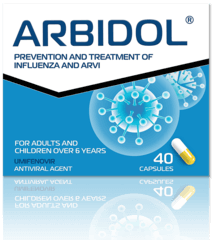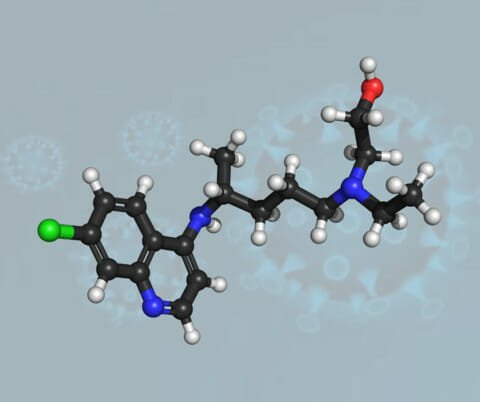Antimalarial Drug Against Coronavirus
April 5, 2020
Antimalarial Drug Against Coronavirus
In late December 2019, an outbreak of an emerging disease (COVID-19) because of a novel coronavirus started in Wuhan, China, and rapidly spread across the globe. To date, there is no medical drug for the treatment of coronavirus. The severe emergency caused by the epidemic allowed clinicians to use antiviral drugs, despite the lack of evidence. One strategy to treat COVID-19 is repositioning old drugs for use as antiviral treatment because safety profile, side effects, posology, and drug interactions are well known. One such drug is the antimalarial drug, Hydroxychloroquine, which has been used for decades to treat malaria and autoimmune diseases like lupus.
Background information
Hydroxychloroquine, also known under the commercial name of Plaquenil or Immard, belongs to the quinoline group. The use of aminoquinoline preparations began in the Middle Ages when it became known that substances obtained from the bark of the quinine tree have antipyretic and antimalarial effects. In the 1820s the active substances quinine and cinchonine were isolated. The first report on the effectiveness of quinine in a patient with lupus rash was presented in 1894 by the English doctor Payne JS. In 1930, a German pharmaceutical company synthesized quinacrine, which was widely used by the United States for the prevention and treatment of malaria in soldiers in the Pacific during the Second World War. The synthesis of less toxic aminoquinoline preparations (Chloroquine phosphate and Hydroxychloroquine sulfate) in the 1940s laid the foundation for their widespread use in rheumatic diseases. Hydroxychloroquine has shown good tolerance and effectiveness.
Although Hydroxychloroquine has been used for a long time, the mechanism of its anti-inflammatory action is still unclear. It is assumed that the drug can change the activity of a number of important enzymes, which determines a wide range of its therapeutic effects in various diseases: anti-inflammatory, immunomodulating, antioxidant, antiplatelet, hypolipidemic, and hypoglycemic. Hydroxychloroquine suppresses the reactivity of T-lymphocytes against mitogens, inhibits leukocyte chemotaxis, stabilizes lysosomal membranes, inhibits DNA and RNA synthesis, and traps free radicals.
Though it is still referred to as an antimalarial drug nowadays it is more often used in the following conditions:
- Rheumatoid arthritis (combination therapy). Hydroxychloroquine belongs to a class of medications that are known as DMARDs which stands for Disease-Modifying Anti-Rheumatic Drugs. Studies have indicated that it can reduce pain, swelling, and joint damage, and reduce the severity of long-term disability related to some connective tissue diseases.
- Systemic lupus erythematosus. It is a systemic autoimmune disease characterized by the formation of organ-specific autoantibodies to various components of the nucleus and immune complexes that cause immune-inflammatory damage to internal organs. A good tolerance profile of Hydroxychloroquine makes it possible to use the drug throughout the entire duration of the disease.
When prescribing and using Hydroxychloroquine, it is important to remember about contraindications. The most serious complication associated with taking Hydroxychloroquine is retinopathy. It is recommended that a routine ophthalmic examination be performed every six months for the early diagnosis of ophthalmic complications. Stop taking this medicine and consult your doctor if you have trouble focusing, if you see light strips or flashes in your vision, or if you notice any swelling or discoloration of your eyes.
Hydroxychloroquine has a marked effect on heart rate and can lead to arrhythmias and sudden cardiac arrest. The risk of cardiotoxicity increases in chronic renal pathology, in elderly patients, in a history of heart diseases, and in case the recommended daily dose is exceeded.
The most frequent and mild side effects include gastrointestinal (nausea, diarrhea) and skin (urticaria, pruritus) reactions. Side effects associated with the central nervous system are manifested mainly by headaches and dizziness.
This list of recommendations, contraindications, and side effects is not complete. For more information, please refer to the official drug description.
Hydroxychloroquine vs. Coronavirus
Representatives of several countries have already stated that Hydroxychloroquine has shown its effectiveness in treating coronavirus infection. For example on March 19, Donald Trump said that Hydroxychloroquine was approved by the Food and Drug Administration (FDA) to test as a COVID-19 coronavirus treatment. He then doubled down on this information in his Twitter.
Earlier, a team of French scientists led by Didier Raoul announced the positive results of the study, according to which Hydroxychloroquine in combination with the antibiotic Azithromycin turned out extremely effective against coronavirus.
A group of 42 patients with PCR confirmed coronavirus infection was enrolled in the study of the French researchers. A total of 26 patients received three doses of Hydroxychloroquine sulfate (200 mg per dose) for 10 days. Six study participants also received Azithromycin for the prevention of bacterial superinfection (dosage of 500 mg on the first day of the course and 250 mg in the remaining four days) in addition to Hydroxychloroquine. 16 were control patients.
On the sixth day of the therapy, according to the results of the virological studies, 70% of patients receiving Hydroxychloroquine were completely healthy. At the same time, all test subjects who received antibiotics in addition to Hydroxychloroquine also got rid of the virus. In the control group, the proportion of people who recovered during the same time was 12.5%.
However, the results of the study should be taken with caution. A small sample in the absence of double-blind testing does not allow making a far-reaching conclusion about the discovery of an effective drug against COVID-19.
Meanwhile, tests are taking place in other countries as well. South Korean doctors also recommended Hydroxychloroquine in combination therapy in the dosage of 400mg orally per day to avoid viral bacterial pneumonia. They said that antiviral treatment will be most suitable for 7 to 10 days. Still, the period could be shortened or extended depending on clinical progress (https://www.koreabiomed.com/news/articleView.html?idxno=7428).
In February 2020, another group of experts from China studied the use of Chloroquine (an analog of Hydroxychloroquine) in vitro in the treatment of acute coronavirus infection. In the study, they pointed out that the drug helps to improve the clinical course of the disease, reduce hospitalization duration, and increase the likelihood of an optimistic outcome of the treatment. If Chloroquine is not available, it is recommended to use Hydroxychloroquine as an alternative in the dosage of 200 mg 2 times a day for 10 days.
Many experts are quite skeptical and say that the studies are preliminary and incomplete, but the results look convincing enough to accept the treatment with the drug in a crisis situation.
In Russia, Hydroxychloroquine is on the list of vital and essential medicines. Sergei Voznesensky, a Russian scientist, Candidate of medical sciences, and Associate professor of the Department of Infectious Diseases of the RUDN University, said that one of the effects of Chloroquine (Hydroxychloroquine) is immunosuppressive, i.e. the drug suppresses the immune response. According to the specialist, the severe course of coronavirus infection is characterized by a syndrome called SARS (severe acute respiratory syndrome) with a complication in the form of pneumonia and respiratory failure. The pathogenesis of this SARS is a powerful and excessive response of the immune system. One way to suppress this reaction is to prescribe Hydroxychloroquine. However, the expert did not argue that Hydroxychloroquine might become a universal remedy.
On March 20, the World Health Organization (WHO) announced the launch of the global project SOLIDARITY, a worldwide study of the most promising drugs to treat COVID-19, which will bring together thousands of patients from many countries. In total, more than 20 potential anti-COVID-19 drugs are currently at different stages of the study, and the effectiveness of some of them will probably be estimated as soon as in April.
At the same time, for many reasons, it is very difficult to find a cure for viral infections. For example, there are still no effective drugs to treat the usual flu, let alone the novel virus. Even if a cure against coronavirus is found, it will take another months, it will probably not be universal, and it will have side effects. In the fight against the COVID-19 pandemic, humanity will have to rely on its own immunity and quarantine measures.
In CosmicNootropic Store
At the moment, due to the coronavirus situation, it’s pretty hard to get this medication, so we don’t have it in our CosmicNootropic store. But this is not the only drug that has the potential and is currently being tested. Check our post about the studies devoted to ARBIDOL.
 |
ARBIDOL (Umifenovir)
A broad-spectrum antiviral preparation that is used in the treatment of influenza A and B infections (including swine and avian) and other ARVI and rotavirus pathogens. The drug inhibits fusion between the viral capsid and the cell membrane of the target cell. This prevents viral entry to the target cell and therefore protects it from infection. Due to this mechanism of action, preparation has a wide spectrum of antiviral activity against viruses that cause various acute respiratory infections, including viruses from the Coronaviridae family. |
Disclaimer: This information is not medical advice. The information available on CosmicNootropic.com cannot and should not replace a doctor’s appointment. Be sure to contact medical specialists if you have any diseases or symptoms that bother you.




